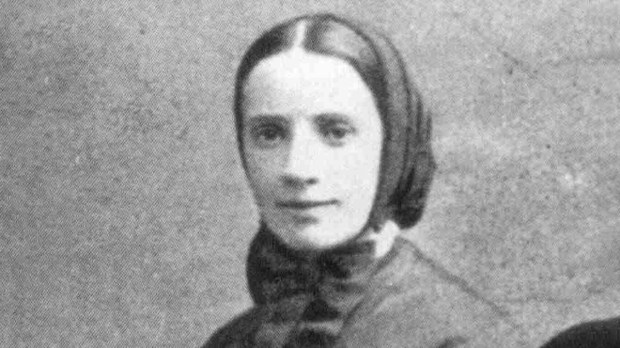Figuring out what God wants from you can feel really confusing, but St. Francis Xavier Cabrini shows us how it’s done. Her gift for discerning and submitting to God’s will makes her an amazing role model for modern women and men.
It’s a little funny that “discerning God’s will” is such an opaque prospect for many of us, because this approach is “entirely foreign to the great tradition of the Church,” as one writer puts it. Let’s take common sense and Church teaching as our guides, so that we avoid “an over-devotion to Our Lady of Perpetual Discernment.”
Personal vocation does not have to be a bewildering quandary. It turns out your vocation is a matter of doing “the next right thing,” a task which is both simple and often very hard. It means doing the duty that’s right in front of you, serving others and God where you are.
One theologian described vocation in this way: “The place God calls you to is the place where your deep gladness and the world’s deep hunger meet.” That understanding of vocation is something to keep in mind when we look at the life story of St. Frances Xavier Cabrini.
Frances Xavier Cabrini had a great desire to serve as a missionary. She founded the Institute of the Missionary Sisters of the Sacred Heart of Jesus with the goal of serving as missionaries in China.
But when she visited Rome to obtain an audience with Pope Leo XIII, he famously told Frances to go “not to the East, but to the West”: He told her to go to New York to help the thousands of Italian immigrants already in the United States.
In that moment, Mother Cabrini showed the world what it means to joyfully accept God’s will even when it’s not your plan. She went to New York and totally dedicated herself to the Church in America. And in the following 28 years, she traveled to Europe, Central and South America, and throughout the United States; made 24 trans-Atlantic crossings, even though she was afraid of the ocean; and established 67 institutions: schools, hospitals, and orphanages.
In the Americas, she found the place where her deep gladness as a missionary for Christ met the deep hunger of the immigrants in need. And in the process, she left a monumental legacy of service and evangelization.
Of course, her acceptance of God’s will is only one of many reasons to take her as your role model. Here are 3 other reasons she’s an incredible example to the modern Christian.
1Her entrepreneurial spirit
It turns out that many of the great saints have an astonishing number of habits in common with entrepreneurs who start their own businesses. Mother Cabrini’s pioneering spirit is an example to anyone trying to get something of their own off the ground.
Wherever she went, she seemed to ask herself, “What do the people here need? How can I start it?” That straightforward but deeply insightful approach was key to her great success.
2Her sacrificial service
As Christians, we know that the way to happiness is not wealth, power, or pleasure. What brings us the greatest joy and purpose, both in this life and the next, is serving others.
Mother Cabrini found more ways to serve others than I can begin to list, including the following:
Frances personally and her sisters collectively served the poor with home visits, ministered to the sick in hospitals, cared for children in orphanages and educated them in schools, and offered tender charity to inmates in prison.
Her spirit of unfailing service persisted to the very end of her life:
Mother Cabrini continued her work until her health truly began to fail her. Her lifetime of service was reflected in her death since she died in one of the hospitals she herself had opened. At the time of her death, she was still thinking of others as she prepared Christmas candy and gifts for local children.
3Her welcoming approach
As an immigrant to the United States in her 30s, Mother Cabrini knew what it felt like to be a stranger in a strange land. She embraced her new culture as well as her old:
Frances navigated the shoals of the Americanist controversy by insisting on a middle ground of bilingual education—angering both the anti-immigrant crowd who wanted English only and the Italian nationalists who feared assimilation and demanded Italian only.
Her inclusive approach reminds us that Catholicism is the “religion of both/and, not either/or.” She chose to teach both English and Italian; she served both physical needs and spiritual needs; she was both an Italian immigrant and an American.
Her talent for inclusivity, for wholeheartedly embracing “both/and,” is so important today as we navigate an increasingly divided world. How can we be the person in the room who welcomes everybody, whether or not they agree with us?
St. Frances Xavier Cabrini is a great Italian-American saint, someone to proudly claim as a daughter of both countries. She was a woman who chose to do “the next right thing,” even when it wasn’t what she had in mind, and in doing so served God and others with heroic virtue.


